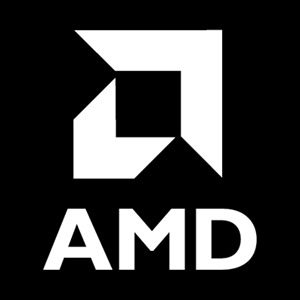Adobe Lightroom Classic: 13th Gen Intel Core vs AMD Ryzen 7000
Intel’s new 13th Gen processors have just launched, hard on the heels of AMD’s recent release of their Ryzen 7000 Series. Intel has traditionally held the lead for active tasks in Lightroom Classic, although AMD has taken the lead recently for passive tasks like exporting with their Ryzen 7000 processors. Will the new 13th Gen processors allow Intel to become the king for Lightroom Classic across the board?
Adobe Photoshop: 13th Gen Intel Core vs AMD Ryzen 7000
Intel’s new 13th Gen processors have just launched, hard on the heels of AMD’s recent release of their Ryzen 7000 Series. Intel has traditionally held the lead in lightly threaded applications like Photoshop, although Ryzen 7000 allowed AMD to largely make up the difference. Will the new 13th Gen processors allow Intel to take back firm control for Photoshop?
Intel Arc A750 & A770 Content Creation Review
Intel is not new to graphics in general, as they have long had a range of processors that featured integrated graphics. However, they are now starting to get into the discrete GPU market with their new Intel Arc series of cards. The Arc A380 launched a few months ago, but today we get the chance to examine the much more powerful Intel Arc A750 and A770. How will these cards perform, and how do they compare to their competitors from NVIDIA?
NVIDIA RTX4090 ML-AI and Scientific Computing Performance (Preliminary)
This post presents preliminary ML-AI and Scientific application performance results comparing NVIDIA RTX 4090 and RTX 3090 GPUs. These are early results using the NVIDIA CUDA 11.8 driver.
NVIDIA GeForce RTX 4090 24GB Content Creation Review
NVIDIA is beginning to launch their new RTX 40 Series GPUs, starting with the GeForce RTX 4090. NVIDIA touting significantly higher performance versus the previous generation 30 series, but how does this new card perform in the real world, and is it worth considering in your next content creation workstation?
AMD Ryzen 7950X: Impact of Precision Boost Overdrive (PBO) on Thermals and Content Creation Performance
The new AMD Ryzen 7000 Series of processors bring terrific performance across the board, but have been criticized in many reviews due to the fact that they often hit CPU temperatures of 95 Celcius under heavy loads. However, we have found that they only operate at these high temperatures when the motherboard BIOS is allowed to automatically overclock the processor above the official AMD specifications. Does running them at reference speeds impact performance, and how much of a difference does it make for thermals?
AMD Ryzen 7950X Scientific Computing Performance – 7 Optimized Applications
This post presents scientific application performance testing on the new AMD Ryzen 7950X. I am impressed! Seven applications that are heavy parallel numerical compute workloads were tested. The 7950X outperformed the Ryzen 5950X by as much as 25-40%. For some of the applications it provided nearly 50% of the performance of the much larger and more expensive Threadripper Pro 5995WX 64-core processor. That’s remarkable for a $700 CPU! The Ryzen 7950X is not in the same platform class as the Tr Pro but it is a respectable, budget friendly, numerical computing processor.
AMD X670E vs X670 vs B650E vs B650
AMD has launched their latest Ryzen 7000 Series processors, which use a new socket design and thus require new chipsets and motherboards. To fill this role, AMD is offering two chipset models with two variants each. How do X670 and B650 compare? And what differences are found in the “extreme” versions of each?
AMD Ryzen 7900X vs Intel Core i9 7900X – Battle of the 7900X’s
AMD has launched their new Ryzen 7000 Series desktop processors, and one of the new processors in particular offers us an opportunity for some unique testing and analysis. Namely, the AMD Ryzen 7900X shares the same model name as a slightly aged CPU from Intel: the Core i9 7900X. This begs the question: how does the newcomer 7900X fare against the veteran 7900X in content creation applications?
AMD Ryzen 7000 Series Processors Content Creation Review
AMD has launched their new Ryzen 7000 Series desktop processors (code-named “Raphael”) based on the latest Zen 4 architecture. These CPUs support DDR5 and PCIe 5.0, with up to 16 cores with a peak clock speed of 5.7 GHz. Along with the increased frequencies and DDR5 support, AMD has touted a 13% IPC (instructions per clock) improvement compared to the previous generation. But, the question is, how will this all translate to real world performance for content creators?







